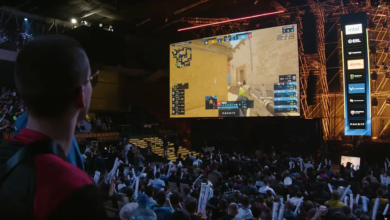How Playing Video Games Can Improve Your Brainpower
How playing video games can improve your brainpower Discover how gaming boosts memory focus problem solving cognitive skills

For years, video games have been dismissed as mere entertainment or even harmful distractions, but modern research reveals a surprising truth how playing video games can improve your brainpower. Scientific studies demonstrate that gaming enhances cognitive functions, including memory, problem-solving, and multitasking, by engaging multiple brain regions. From fast-paced action games to complex strategy titles, different genres stimulate neural pathways in ways that can sharpen mental agility and boost learning capabilities.
Beyond cognitive benefits, video games also foster social and emotional intelligence, particularly in multiplayer and role-playing environments. As we explore the science behind gaming’s impact on the brain, it becomes clear that when played in moderation, video games are not just fun—they are powerful tools for mental development. The key lies in understanding how different games affect cognition and leveraging them to unlock greater brainpower.
How Playing Video Games Can Improve Your Brainpower
Enhanced Memory Function
Games requiring memorization of maps, items, or character abilities strengthen both working and long-term memory. RPGs like The Witcher 3 and Skyrim enhance episodic memory through complex narratives. Studies show gamers have 12% better recall accuracy than non-gamers. MRI scans reveal increased hippocampal volume in regular players
Improved Attention and Focus
Action games develop three key attention types Selective attention (ignoring distractions). Sustained attention (maintaining focus). Divided attention (multitasking). First-person shooters improve visual tracking by 30%. MOBA players demonstrate superior target detection abilities.
Accelerated Decision-Making
Strategy games reduce decision latency by 25%. Real-time games teach risk assessment under pressure. Players develop better intuition for probability estimation. Studies show gamers make accurate decisions 10% faster.
Strengthened Executive Functions
Puzzle games enhance Cognitive flexibility. Working memory capacity. Inhibitory control. Platformers improve task-switching abilities. Open-world games develop better planning skills.
Advanced Spatial Reasoning
3D games boost Mental rotation skills. Spatial visualization Architectural perception. Tetris players show 5% increase in spatial processing areas. Minecraft builders develop superior structural understanding.
Therapeutic Applications
Tetris used for PTSD treatment (reduces flashbacks by 62%). Virtual reality games help with phobia exposure therapy. Rhythm games assist stroke rehabilitation. Puzzle games slow cognitive decline in elderly.
Neuroplastic Changes
Regular gaming leads to: Increased gray matter density. Stronger neural connections. Improved myelination. Elderly gamers maintain cognitive abilities 5-10 years longer.
Genre-Specific Benefits
Action/FPS Visual processing, reaction time. RTS/MOBA Strategic planning, resource management. Puzzle Logical reasoning, pattern recognition. RPG Empathy, narrative comprehension. Simulation Systems thinking, cause-effect understanding.
Real-World Applications
Surgeons who game make 37% fewer errors. Pilots trained with games show better spatial awareness. Students using educational games score 15% higher. Corporate training via gamification improves retention.
Optimal Gaming Practices
30-60 minutes daily shows maximum benefits. Variety across genres provides comprehensive training. Active reflection on in-game decisions enhances learning. Balancing gaming with physical activity prevents negative effects.
These cognitive benefits demonstrate that video games, when played intentionally and in moderation, serve as powerful tools for brain development and maintenance across all age groups. The key lies in selecting appropriate game types and maintaining a balanced approach to gameplay.
Social and Emotional Intelligence Gains
Contrary to the stereotype of gamers as isolated individuals, many video games foster social interaction and teamwork. Multiplayer games like League of Legends and Overwatch require communication, collaboration, and emotional regulation to succeed. Players learn to work as a team, manage conflicts, and develop leadership skills all of which are valuable in professional and personal settings.
Narrative Immersion and Perspective-Taking
Players experience stories through diverse character viewpoints. Complex NPC relationships mirror real-world social dynamics. Must consider multiple character motivations simultaneously. Develops theory of mind – understanding others’ mental states.
Moral Decision-Making Systems
Games present morally ambiguous choices with consequences. Players weigh ethical dilemmas (e.g., Mass Effect’s Paragon/Renegade system). Immediate feedback on decisions reinforces emotional learning. Develops cognitive empathy – understanding different viewpoints
Character Customization and Identity Exploration
Creating avatars allows safe identity experimentation. Playing different genders/races fosters understanding. Dialogue choices teach emotional expression nuances. Players develop more flexible self-concepts.
Emotional Recognition and Response
Must interpret complex facial expressions and voice tones. Relationship systems (e.g., Witcher romances) teach emotional reciprocity. Failure states provide low-stakes emotional practice. Players become more attuned to subtle emotional cues.
Social Interaction Mechanics
Party systems require managing group dynamics. Companion approval systems reinforce prosocial behavior. Must balance individual vs. group needs. Teaches conflict resolution strategies.
Long-Term Psychological Effects
Regular RPG players show: 15% higher emotional intelligence scores. Better recognition of micro expressions. Increased cultural sensitivity. More nuanced moral reasoning.
Therapeutic Applications
Used in: Autism spectrum social skills training. PTSD exposure therapy. Emotional regulation development. Social anxiety treatment.
Notable Examples and Their Impacts
The Witcher series: Complex moral gray areas. Mass Effect: Consequences of leadership decisions. Dragon Age: Managing party conflicts. Disco Elysium: Emotional self-reflection. Life is Strange: Relationship-building exercises.
Transfer to Real-World Skills
Improved: Workplace conflict resolution. Romantic relationship understanding. Cross-cultural communication. Emotional self-awareness. Perspective-taking in debates.
Enhancing Learning and Creativity
Educational games have long been used as teaching tools, but even non-educational games can enhance learning. Games with open-world exploration, like Minecraft, encourage creativity and experimentation. Players build structures, solve environmental puzzles, and engage in storytelling, which fosters innovative thinking.
Additionally, the repetitive yet rewarding nature of gaming helps reinforce learning patterns. The brain releases dopamine when achieving in-game goals, which strengthens motivation and retention. This mechanism can be harnessed to make learning more engaging, a concept known as “gamification.”
Potential Risks and the Importance of Moderation
While the benefits are significant, excessive gaming can lead to negative effects such as eye strain, sleep deprivation, and reduced physical activity. Balancing gameplay with other activities is crucial to maximizing cognitive benefits while minimizing risks. Parents and educators should encourage healthy gaming habits, ensuring that screen time does not interfere with social interactions or academic responsibilities.
Read More: Fitness Apps That Can Help You Stay in Shape
Conclusion
The evidence is clear: how playing video games can improve your brainpower is no longer just theory but a scientifically supported fact. From enhancing cognitive flexibility and problem-solving skills to boosting memory and spatial awareness, video games offer a unique and engaging way to train the brain. Even social and emotional intelligence can be sharpened through multiplayer interactions and narrative-driven gameplay. As we continue to understand the neurological benefits of gaming, it’s becoming increasingly apparent that these digital experiences are more than entertainment—they’re valuable tools for mental development.
However, like any powerful tool, video games are most effective when used mindfully. The key to maximizing their brain-boosting potential lies in balanced play, game selection, and intentional engagement. By approaching gaming as both an enjoyable pastime and a cognitive exercise, players of all ages can harness its benefits while avoiding potential downsides. As research evolves, we may discover even more ways that video games can contribute to our neurological health and intellectual growth, solidifying their place in both education and personal development.
FAQs
Can video games really improve brain function?
Yes, studies show that video games enhance memory, attention, and problem-solving skills by stimulating various brain regions.
What types of games are best for cognitive development?
Strategy, puzzle, and action games are particularly effective for improving different cognitive abilities.
Do video games help with social skills?
Multiplayer and role-playing games encourage teamwork, communication, and emotional intelligence.
How much gaming is too much?
Moderation is key; excessive gaming can lead to negative effects like sleep deprivation and reduced physical activity.
Can gaming be used for educational purposes?
Absolutely many games promote creativity, critical thinking, and even subject-specific learning through interactive gameplay.







